I hear you’re feeling a bit overwhelmed. I can help – if you’ll let me.
(*cue opening theme and credits*)
 One. You have GOT to BREATHE.
One. You have GOT to BREATHE.
Long and deep, in through the nose… out through the mouth – good. A few more times…
No, don’t just read on – this stuff doesn’t work if you don’t do it. DO THE BREATHING, then listen to me.
 Two. You’re not stupid.
Two. You’re not stupid.
I don’t know if you’re a genius or not, but genius isn’t necessary here. I assure you, if you were stupid, your teacher would be nicer to you. He or she would have called you aside long ago and had a conversation something like this:
“Hey, um… Angela. Look, I have some bad news. You’re too stupid for this class. It’s OK – it’s not your fault, Probably some combination of genetics and upbringing. BUT, we’re gonna need to get you into a slow kids class, OK?”
If that didn’t happen, you’re good.

Three. You’re not alone.
Sure, there are a number of your peers for whom school is much easier than it is for you. That’s OK – everyone’s different. Most of the folks around you, though, are just putting up a good front – many just as panicked as you.
I know because I’ve had this same conversation often enough to make a blog post out of it. No offense, but I wouldn’t do this for just you. Too much work.
 Four. Shut yourself up.
Four. Shut yourself up.
I suppose you could take this literally, as in “find a quiet place” – which is also good advice. But here I mean inner-dialogue-wise.
Remember the old cartoons with the AngelYou and the DevilYou on opposite shoulders? Contrary to what you might think, DevilYou isn’t primarily focused on trying to get you to rob banks or do crack. Those aren’t legitimate temptations for you – you’re a ‘good kid’, remember?
It IS, however, willing to maintain a constant stream of deprecation and frustration, running in the background of everything you think, feel, say, or do. Details vary with personal insecurities, but whether it’s despair, rage, detached cynicism, or debauchery, it usually begins with tearing off little strips of you and pretending that’s the cost of being ‘honest’ with yourself.
That’s a lie, by the way.
You can’t kill it or completely mute it – it’s you, after all – but you can recognize it and turn it down. Assign AngelYou to keep it in check. Quietly if possible, but out loud if necessary. Seriously – talk to yourself, realistically but positively. It’s good for you.
 Five. Get a planner or agenda of some sort.
Five. Get a planner or agenda of some sort.
Mundane, right?
They work, but you have to use them. Starting TODAY, every hour, jot down what you did in class and what’s assigned and when it’s due. I know you think you’ll remember, but we’re having this conversation, so obviously…
Set your phone alarm to remind you at least twice each day – once around the time you get home from school and once several hours before you go to bed – to look at your planner. Read through it even if you don’t stop and do everything right then.
Anything that doesn’t get done gets copied onto the next day, and so on, until you do it. Continue this system even when you don’t think you need to – new habits take time.
 Six. Choose a few things that won’t take long, do them, and cross them off.
Six. Choose a few things that won’t take long, do them, and cross them off.
If you do something that needs doing but wasn’t on the list, write it down, then cross it off. The reason this is so important is – look, just trust me on this. Short version – track record of success. Helps.
This next one is huge. Are you still with me?
 Seven. When you’re doing a thing, do that thing.
Seven. When you’re doing a thing, do that thing.
If you decide to read an assigned book for twenty minutes, set aside that voice panicking about chemistry homework. While you’re doing your math, stop getting on your phone to collaborate on that English project. Pick something, and do it. No second-guessing.
One task at a time. That’s the most you can do, ever.
It’s easy to run from worry to worry until you end up exhausted and frustrated without actually getting much done. One of the greatest hindrances to completing anything is worrying about all the other stuff you suddenly fear you should be doing instead.
That’s a trap and a lie. Shut it off and pick something – right or wrong. Do it exclusively.
 Eight. When you’re working, work.
Eight. When you’re working, work.
When you’re reading, read.
When you’re thinking, think.
Put the phone far, far away. Whatever amazing things unfold in the 20 minutes you’re finishing your calculus, they’ll be there waiting for you when you take a break.
When you’re taking a break, take a break. Set a time limit and don’t keep finding reasons to go past it, but don’t keep worrying about what you’re not getting done.
And move around a little – it’s good for you emotionally and mentally as much as physically.

Nine. Start the big hard stuff early.
Even if you do something else first, do the bad thing next. Leave time to be confused, ask questions, or start wrong.
Human nature is to put off the stuff we don’t fully understand and to avoid thinking about that which we most dread. Suddenly it’s midnight and everything is due and you’re so totally screwed and it all breaks down.
Again.
What’s wrong with you? WHY ARE YOU SO STUPID?
That’s DevilYou, by the way. Didn’t you assign AngelYou to reign her in?
 Ten. Do the parts you can do.
Ten. Do the parts you can do.
Do everything you can do, even if you’re not sure of all of it. Then ask for help with what you can’t.
Read the directions – for real, this time. Call a friend. Actually read the material, take the notes, watch the videos, or try the activities. You’d be surprised how often a student thinks they’re confused when really they just haven’t done the work yet.
I mean, ideally there’s a reason we assign it. If you knew how to do it already, we’d just be wasting your time. It’s supposed to be hard.
When you’ve done the parts you can, THEN email or visit with your teacher.
Conclusion: It’s OK that it’s hard sometimes. Other times, it’s not nearly as hard as you make it. Try to separate your emotions from your thoughts from your abilities, and don’t get so derailed by what you WISH your teachers said or did differently. They didn’t, and they probably won’t, so work with what you’ve got.
I promise you, you can do this. If I can understand it, ANYBODY can.
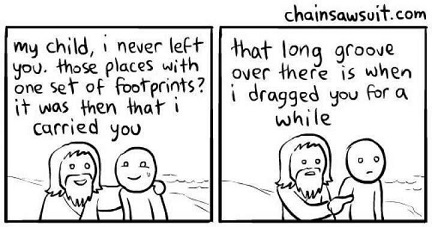
RELATED POST: 10 Points for Overwhelmed Students (Director’s Cut)
RELATED POST: Happy New Mirrors!


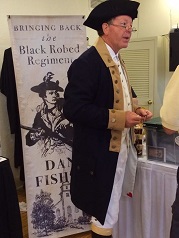 You’re not entirely wrong. Few of us, teachers or no, like change or higher demands on our time and energy – especially when they come from people who have no idea what we do or what they’re talking about.
You’re not entirely wrong. Few of us, teachers or no, like change or higher demands on our time and energy – especially when they come from people who have no idea what we do or what they’re talking about. 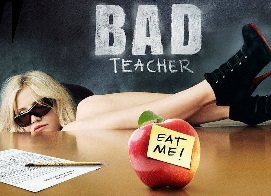 The only way VAM and TLE and other teacher evaluation measurements make any sense or improve anything is if they spur teachers to do a better job. If teachers are capable of doing something better, and aren’t doing it now, the only reasonable inference is that they don’t care enough to improve otherwise.
The only way VAM and TLE and other teacher evaluation measurements make any sense or improve anything is if they spur teachers to do a better job. If teachers are capable of doing something better, and aren’t doing it now, the only reasonable inference is that they don’t care enough to improve otherwise. 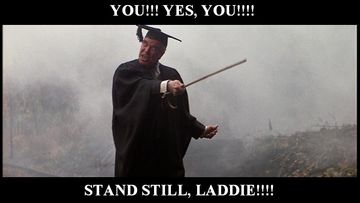 If the solution is ‘raising the bar’ for those entering the classroom, then the problem must be that those choosing education aren’t smart enough to do what they’re hired to do. If that’s true, it’s worth asking what would be useful in drawing ‘smarter’ people into the field – or how to better educate those already willing.
If the solution is ‘raising the bar’ for those entering the classroom, then the problem must be that those choosing education aren’t smart enough to do what they’re hired to do. If that’s true, it’s worth asking what would be useful in drawing ‘smarter’ people into the field – or how to better educate those already willing.  No one wants this job.
No one wants this job.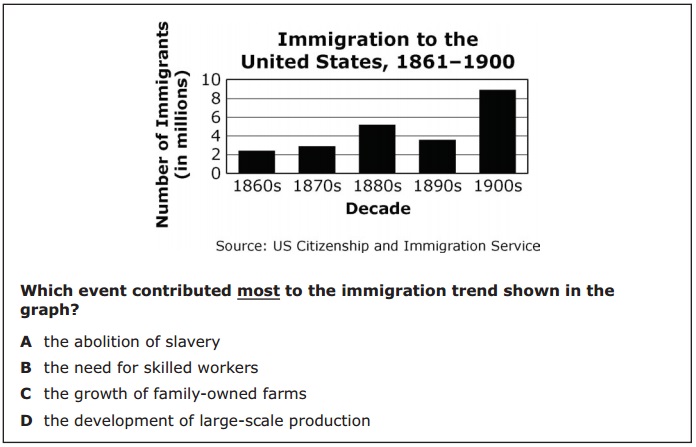
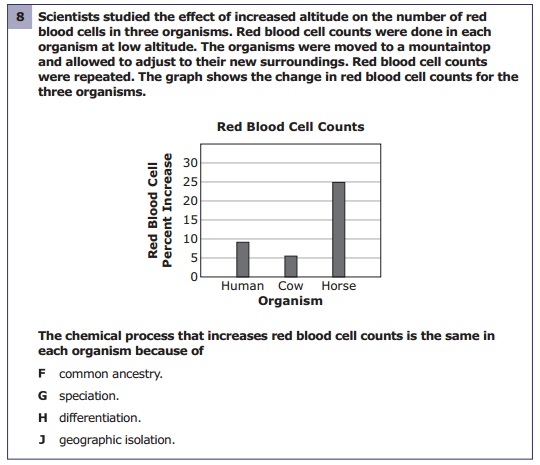


 We can’t vary the curriculum significantly – state law. We can’t afford meaningful, hands-on learning of the sort you keep reading we should be doing, nor can we spare ‘core curriculum’ time to do anything interesting that kids might actually want to explore (and on which we could then build essential universals, like reading and writing and mathematical reasoning) – state law and legislative purse strings.
We can’t vary the curriculum significantly – state law. We can’t afford meaningful, hands-on learning of the sort you keep reading we should be doing, nor can we spare ‘core curriculum’ time to do anything interesting that kids might actually want to explore (and on which we could then build essential universals, like reading and writing and mathematical reasoning) – state law and legislative purse strings. 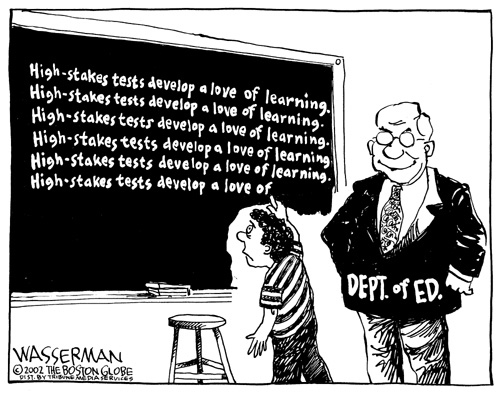 We can’t hold kids with the most potential to real academic standards or expectations of personal responsibility – angry parents, strange cultural ideals about the need to have 102% in everything and never struggle or fail, and administrators who are under a lot of pressure to show that every single child in the district is Top 10%.
We can’t hold kids with the most potential to real academic standards or expectations of personal responsibility – angry parents, strange cultural ideals about the need to have 102% in everything and never struggle or fail, and administrators who are under a lot of pressure to show that every single child in the district is Top 10%. 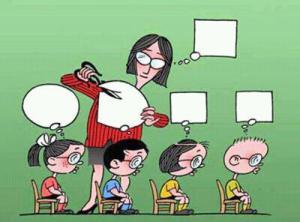
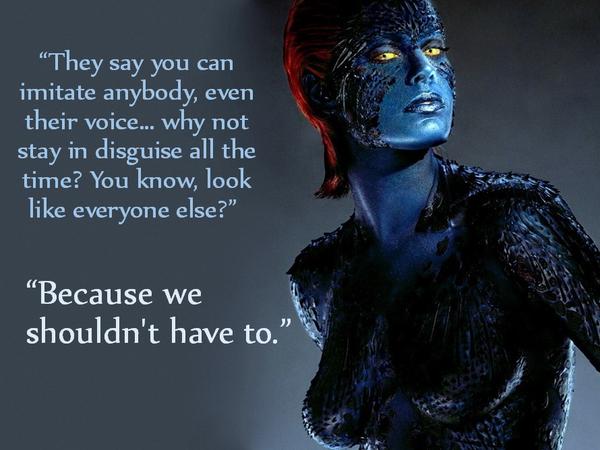
 Look, you and I both know things have gotten ridiculous lately. The inmates are running the asylum, and we can’t even say anything about it because the only protected speech these days is nutty liberal speech – am I right?
Look, you and I both know things have gotten ridiculous lately. The inmates are running the asylum, and we can’t even say anything about it because the only protected speech these days is nutty liberal speech – am I right? OK, so everyone’s gay now. Fine – live it up. We’ve got girls who are pregnant, boys who think they’re “really” girls, and a few wrecking ball personalities who insist they’re trans-bi-something or other.
OK, so everyone’s gay now. Fine – live it up. We’ve got girls who are pregnant, boys who think they’re “really” girls, and a few wrecking ball personalities who insist they’re trans-bi-something or other.  Silence for just a bit your inherent skepticism about just how innate or genetic or legitimate any variety of lifestyles, identities, or issues might be. In fact, feel free to assume that they’re all poor choices and family dysfunction – every last one – from dyslexia to pony play, it’s all just f****** up and unnatural.
Silence for just a bit your inherent skepticism about just how innate or genetic or legitimate any variety of lifestyles, identities, or issues might be. In fact, feel free to assume that they’re all poor choices and family dysfunction – every last one – from dyslexia to pony play, it’s all just f****** up and unnatural.  They’re our kids.
They’re our kids.  To them, it’s all the same – delusional though it sounds, many of them believe and feel deeply that they’re overwhelmed, underloved, misunderstood or maligned, abused or marginalized. That kind of stuff is all SO relative that it’s usually impossible to know when you’re looking at a survivor some black hole of personal trauma or the teenage equivalent of a two-year old who doesn’t get a cookie and thinks their world is over.
To them, it’s all the same – delusional though it sounds, many of them believe and feel deeply that they’re overwhelmed, underloved, misunderstood or maligned, abused or marginalized. That kind of stuff is all SO relative that it’s usually impossible to know when you’re looking at a survivor some black hole of personal trauma or the teenage equivalent of a two-year old who doesn’t get a cookie and thinks their world is over. 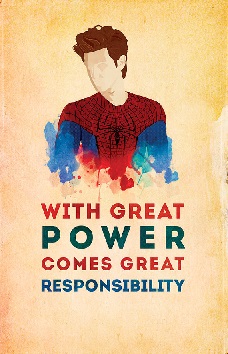 Some of them you couldn’t impact if you used a sledgehammer, I get that – but you impact more of them more strongly than you probably signed up for. Sorry. With power comes culpability and all that. James 3, baby.
Some of them you couldn’t impact if you used a sledgehammer, I get that – but you impact more of them more strongly than you probably signed up for. Sorry. With power comes culpability and all that. James 3, baby. Yeah, they have a circle of friends – but you really think anyone sharing their Island of Misfit Toys is a good replacement for a relatively stable adult willing to accept and push them a bit? Besides, you have a professional and moral obligation not to be part of the problem, however subtle you think your looks and tone might be.
Yeah, they have a circle of friends – but you really think anyone sharing their Island of Misfit Toys is a good replacement for a relatively stable adult willing to accept and push them a bit? Besides, you have a professional and moral obligation not to be part of the problem, however subtle you think your looks and tone might be. Consider being a reasonable, normal, loving person in whatever style you are for the other kids – the ones you ‘get’. You won’t go to hell for it, I promise.
Consider being a reasonable, normal, loving person in whatever style you are for the other kids – the ones you ‘get’. You won’t go to hell for it, I promise. 
 It is difficult for those of you with the slightest shred of decency to appreciate how the law and politics work. They do not operate according to anything most of us consider reasonable, moral, or even explicable. In the past they didn’t have to (and in some systems today they still don’t). Those affected had little expectation of being fully informed and no real control of the outcome.
It is difficult for those of you with the slightest shred of decency to appreciate how the law and politics work. They do not operate according to anything most of us consider reasonable, moral, or even explicable. In the past they didn’t have to (and in some systems today they still don’t). Those affected had little expectation of being fully informed and no real control of the outcome. And then the South began writing the history of the war and the events which led to it. The war they’d lost. The one fought over a variety of issues, but in which slavery and its continuation were central and essential as defined by the South in the very documents they issued to justify their cause.
And then the South began writing the history of the war and the events which led to it. The war they’d lost. The one fought over a variety of issues, but in which slavery and its continuation were central and essential as defined by the South in the very documents they issued to justify their cause. What’s less tolerable is the fervent hurt and chagrin evidenced by the South’s defenders at the very suggestion that secession had ANYTHING to do with slavery. It’s not that they wish to lay out a reasoned argument, you understand – it’s that they’ve reshaped history and historiography solely through repetition and strong emotion.
What’s less tolerable is the fervent hurt and chagrin evidenced by the South’s defenders at the very suggestion that secession had ANYTHING to do with slavery. It’s not that they wish to lay out a reasoned argument, you understand – it’s that they’ve reshaped history and historiography solely through repetition and strong emotion. My favorite hockey team captain after a tough loss and horrible officiating: “There were some tough calls, but the real problem is that we didn’t take care of business in our own end. We let too many pucks get past us and didn’t take advantage of our opportunities.”
My favorite hockey team captain after a tough loss and horrible officiating: “There were some tough calls, but the real problem is that we didn’t take care of business in our own end. We let too many pucks get past us and didn’t take advantage of our opportunities.”  Of course, if the real issues were states’ rights-ish, that’s not as bad. Federalism is about balance, after all, and if perhaps the South got out of balance, that’s clearly rectified now. If anything, the central government is much stronger than originally intended as a result!
Of course, if the real issues were states’ rights-ish, that’s not as bad. Federalism is about balance, after all, and if perhaps the South got out of balance, that’s clearly rectified now. If anything, the central government is much stronger than originally intended as a result!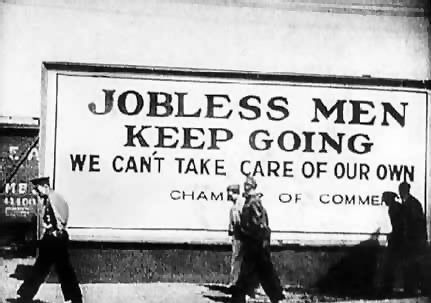 If our ideals are as flawless and their realizations as consistent throughout our history as current legislation insists, then inequity and suffering are primarily a result of personal or cultural failures. If America is ‘exceptional’ in the way they demand we acknowledge, whatever failures have occurred within it are individual and not national. Potential solutions or cures must, logically, come from the same.
If our ideals are as flawless and their realizations as consistent throughout our history as current legislation insists, then inequity and suffering are primarily a result of personal or cultural failures. If America is ‘exceptional’ in the way they demand we acknowledge, whatever failures have occurred within it are individual and not national. Potential solutions or cures must, logically, come from the same. I’ll close with a little Bible talkin’, since that seems to be such a motivator for those pushing a better whitewashing for our lil’uns. Whatever we may disagree on, I wholeheartedly concur that we’ve lost much in our upbringing if we feel the need to run from the wisdom found in
I’ll close with a little Bible talkin’, since that seems to be such a motivator for those pushing a better whitewashing for our lil’uns. Whatever we may disagree on, I wholeheartedly concur that we’ve lost much in our upbringing if we feel the need to run from the wisdom found in 

 Mr. Auld was no fool. He knew that control – whether of populations or individuals – begins through the information to which they have access. Whoever controls knowledge controls everything else – especially when it comes to maintaining a system based on privilege and inheritance.
Mr. Auld was no fool. He knew that control – whether of populations or individuals – begins through the information to which they have access. Whoever controls knowledge controls everything else – especially when it comes to maintaining a system based on privilege and inheritance. There’s nothing wrong with learning to be content with what you have, but that’s a choice we can only make if we have some glimpse of the alternatives. I may wish I were rich, but as I endure Kardashians and Trumps, there are trade-offs I’m not willing to take to get there.
There’s nothing wrong with learning to be content with what you have, but that’s a choice we can only make if we have some glimpse of the alternatives. I may wish I were rich, but as I endure Kardashians and Trumps, there are trade-offs I’m not willing to take to get there. Douglass connected with a character who was in some ways like himself – not in wise words or holy determination, but in the ways his life sucked, like being a slave. This fictional character, however, was able to demonstrate at least one possible way to endure or even flourish in the ugly, imperfect situation in which he was mired. He resonated far more than an idealized hero-figure of some sort could have, belching platitudes while fighting off the darkness with patriotic pluck.
Douglass connected with a character who was in some ways like himself – not in wise words or holy determination, but in the ways his life sucked, like being a slave. This fictional character, however, was able to demonstrate at least one possible way to endure or even flourish in the ugly, imperfect situation in which he was mired. He resonated far more than an idealized hero-figure of some sort could have, belching platitudes while fighting off the darkness with patriotic pluck. Learning is dangerous, but not to the person doing the learning. It can hurt along the way, but you usually end up better off for it.
Learning is dangerous, but not to the person doing the learning. It can hurt along the way, but you usually end up better off for it. The Inquisitions and Puritans and Assigners of Scarlet Letters in New Testament times have no such excuse. If their faith is what they claim, it’s a faith based on light and truth and – above all – informed choice. Jesus and Paul may not have had much in common, but there’s no record either ever lied or hid anything they didn’t want the world to see. They didn’t want to capture anyone who didn’t wish to be won.
The Inquisitions and Puritans and Assigners of Scarlet Letters in New Testament times have no such excuse. If their faith is what they claim, it’s a faith based on light and truth and – above all – informed choice. Jesus and Paul may not have had much in common, but there’s no record either ever lied or hid anything they didn’t want the world to see. They didn’t want to capture anyone who didn’t wish to be won. 